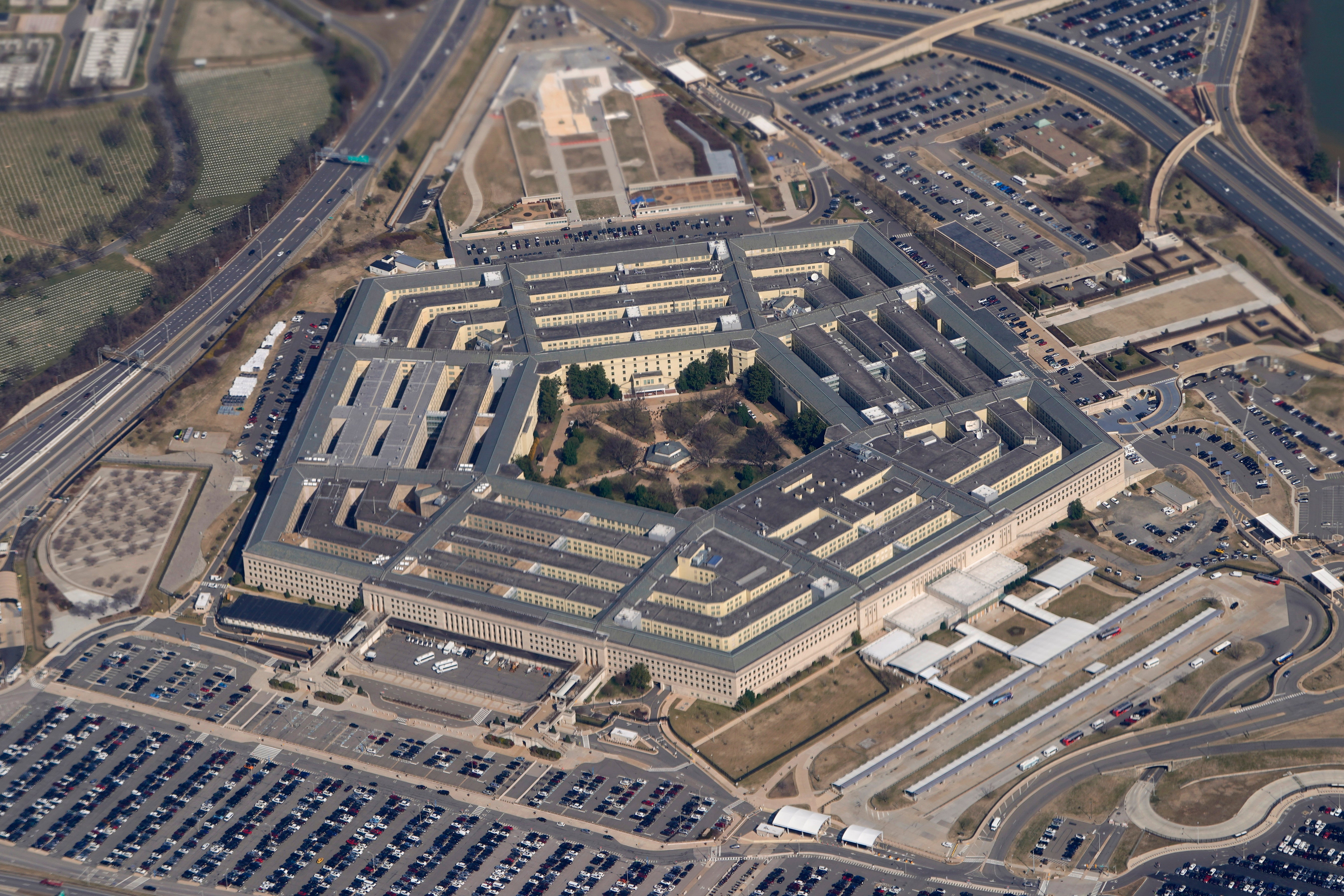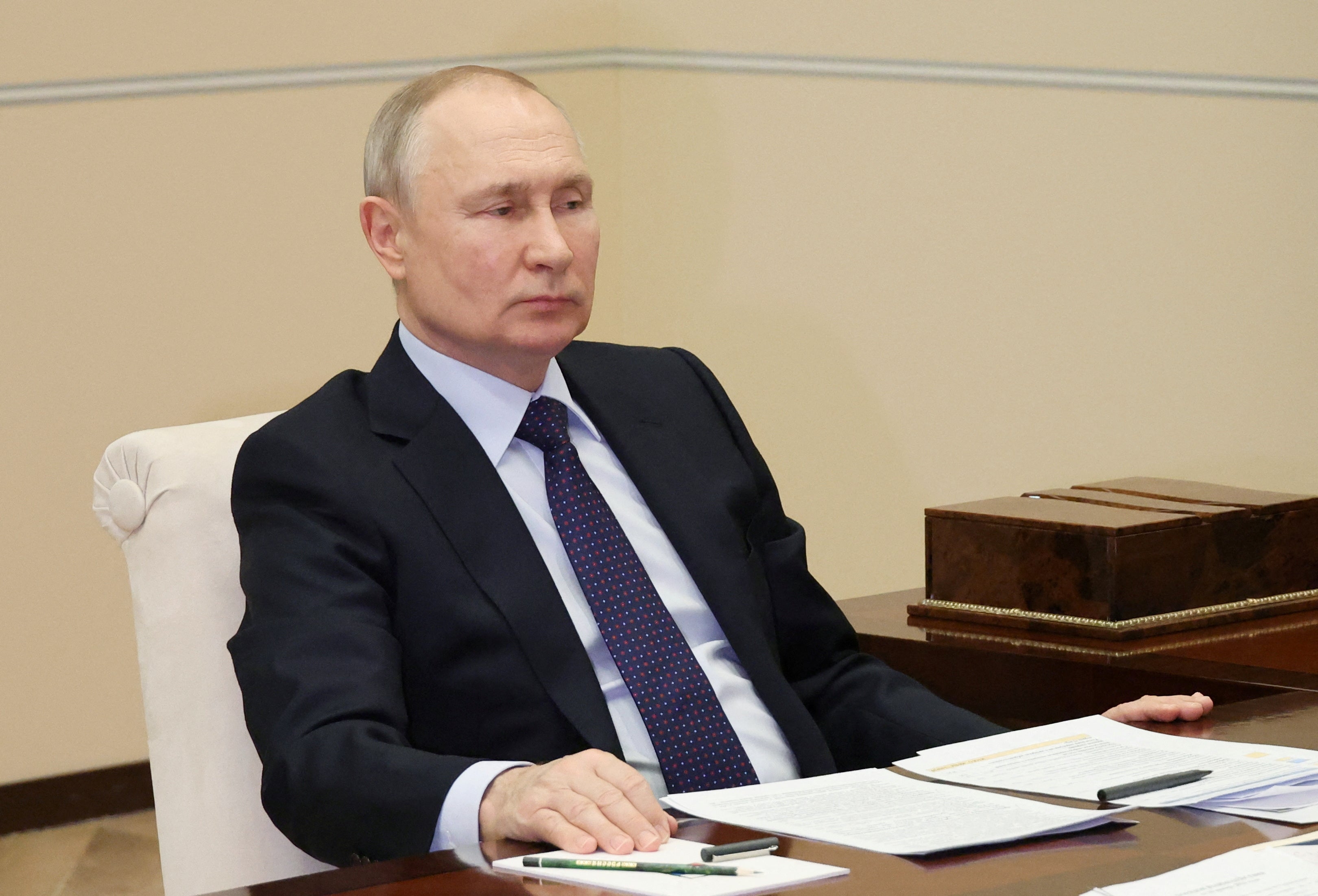
Highly classified military documents shedding light on American intelligence gathered about other countries were released online this week, sending the Pentagon into full-speed damage control to assure allies and assess the scope of the leak.
On Thursday, armed FBI officers arrested a member of the Massachusetts Air National Guard. Authorities raided the home of 21-year-old Jack Teixeira — who worked in cyber security for the Guard — and took him into custody.
The information has apparently highlighted potential vulnerabilities in Ukraine's air defence capabilities and exposed private assessments by allies on an array of intelligence matters, raising questions about whether the leak will erode allies' trust in sharing information with the US or affect Ukraine's strategic combat plans.

Funded at $90bn annually, US intelligence agencies have sweeping powers to tap electronic communications, run spies and monitor with satellites. The results of those powers are rarely seen in public, even in limited form.
Overall, the leaked documents present a "very serious risk to national security," a top Pentagon spokesman told reporters on Monday. The Ministry of Defence has tried to play down the impact, referring to ‘serious inaccuracies’.
Here are five of the key takeaways from the leaked Pentagon documents:
UK special forces might have operated in Ukraine
Claims that UK special forces have operated in Ukraine have been widely reported.
Media outlets including the BBC and The Guardian reported that a document, dated March 23, indicates as many as 50 UK special forces personnel have been deployed to the country alongside other Western special forces.
The Ministry of Defence warned against taking allegations contained in the reported leak of US classified information at "face value".
An MoD spokesperson said in a message posted on Twitter: "The widely reported leak of alleged classified US information has demonstrated a serious level of inaccuracy. Readers should be cautious about taking at face value allegations that have the potential to spread disinformation."

Ukrainian casualties higher and air munitions lower
The leaked documents point to Ukrainian casualty figures being higher than publicly stated by Kyiv, which was broadly known by those familiar with the conflict.
Also, it suggests that Ukrainian air defences were running out of munitions. This again was known, but not to the extent suggested — that they will start running out by the end of May.
Much of the material is about Western efforts to keep Ukraine supplied with weapons.
There were claims that Serbia, the only European state to refuse to impose sanctions on Russia following the invasion, with Alexander Vucic’s government repeatedly professing neutrality, had agreed to send arms to Ukraine, and may have done so already. The country’s defence minister, Milos Vucevic, denied the report; there is no comment, yet, from President Vucic’s office.
US seems to spy on its allies
The leaks have highlighted how closely the US monitors how its allies and friends interact with Russia and China. Officials in several countries have denied or rejected allegations from the leaked records.
The AP has reported on US intelligence picking up claims from Russian operatives that they were building a closer relationship with the United Arab Emirates, the oil-rich Middle Eastern nation that hosts important American military installations. The UAE rejected the allegations, calling them “categorically false.”
Other leaks have concerned allegations that South Korean leaders were hesitant to ship artillery shells to Ukraine and that Israel’s Mossad spy service opposed Prime Minister Benjamin Netanyahu’s proposed overhaul of the judiciary.
The leak has been described as “a nightmare for the Five Eyes” — the intelligence-sharing nations of US, Britain, Australia, New Zealand and Canada — by a senior intelligence official speaking to The New York Times.

Egypt planned to supply rockets to Russia
According to the leak, Egypt, which receives $1.3bn (£1bn) in American military aid each year, was planning to sell rockets and munition to Moscow, with Egypt’s president Abdel Fattah al-Sisi instructing officials to keep production and shipment secret “to avoid problems with the West”.
Russian officials, according to the documents, were boasting that the UAE has agreed to cooperate “against US and UK intelligence”. This was immediately denied by the UAE. But the allegation comes during a time of waning American influence in the region – with China brokering a diplomatic rapprochement between Saudi Arabia and Iran, and Saudi crown prince Mohammed bin Salman refusing US requests to raise oil production after the shortages caused by the embargo on Russia and announcing this week that it will cut production.
Rumour Putin is undergoing chemotherapy
The recently leaked documents address the rumour that Russian President Vladimir Putin is undergoing chemotherapy.

The papers, labelled as “Top Secret”, also indicate that Russian Chief of General Staff Valery Gerasimov and Russian National Security Council Secretary Nikolay Patrushev “devised” a plan to “sabotage” Mr Putin while he undergoes medical treatment.
“Russia planned to divert resources from Taganrog, Russia to Mariupol, Ukraine and focus its attention on the southern front,” the document says. “According to [redacted] source, the plan for “the offensive” (no further information) was suspected to be a strategy devised by [Mr Gerasimov and Mr Patrushev] to sabotage Putin.”
The papers do not specify what alleged medical condition Mr Putin has that requires chemotherapy but there have been longstanding rumours that the Russian president has cancer.







